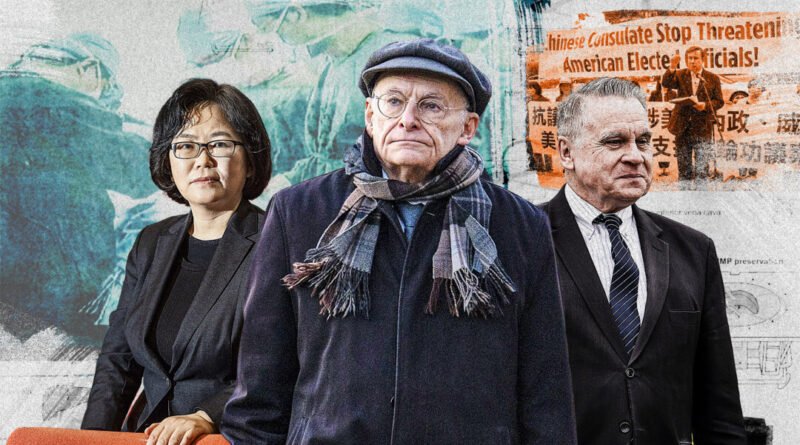The CCP’s Suppression of Discussions on Forced Organ Harvesting in Western Countries
When human rights lawyer David Matas began investigating the Chinese regime’s systematic killing of prisoners of conscience for their organs, he attracted Beijing’s attention, and suspicious events started happening around him.
Organizers canceled events where he was scheduled to discuss the topic, and forum sites backed out with minimal explanation. The day before a forum he was due to host, the venue was targeted in a drive-by shooting that left a bullet hole in the window.
During a live Q&A session, a man claiming to be a Chinese government police official called in and threatened Mr. Matas, asking if he was afraid of death for interfering with the Party’s policies. Mr. Matas remained resolute, telling the caller to stop organ transplant abuse instead of threatening him.
In 2008, two years after the revelation of the regime’s mass killing-for-profit scheme, Chinese authorities tried to intimidate Mr. Matas, demonstrating their unwillingness to engage in meaningful dialogue on the issue.
Despite attempts by Beijing to silence critics, the Chinese Communist Party’s organ harvesting industry remains a billion-dollar enterprise, driven by shorter waiting times for patients and the forced removal of organs from prisoners.
In 2024, the CCP has adopted subtler tactics, using economic and diplomatic influence to suppress criticism and enlisting support from elites in politics, medicine, and other fields. This has created a climate of fear hindering efforts to expose the abuse.
Various incidents, including threats and censorship, illustrate the challenges faced by advocates like David Matas in tackling forced organ harvesting in China.
Efforts by legislators like Rep. Chris Smith demonstrate a commitment to combating forced organ harvesting through legislative action. His bill, the Stop Forced Organ Harvesting Act, has faced opposition from the Chinese government but aims to hold perpetrators accountable.
Despite facing obstacles, advocates such as Cindy Song and Torsten Trey continue their fight against forced organ harvesting, urging the medical community to address the issue openly and transparently.
The Chinese regime’s pervasive influence has hindered awareness and accountability, leading to challenges in exposing and combatting forced organ harvesting.



